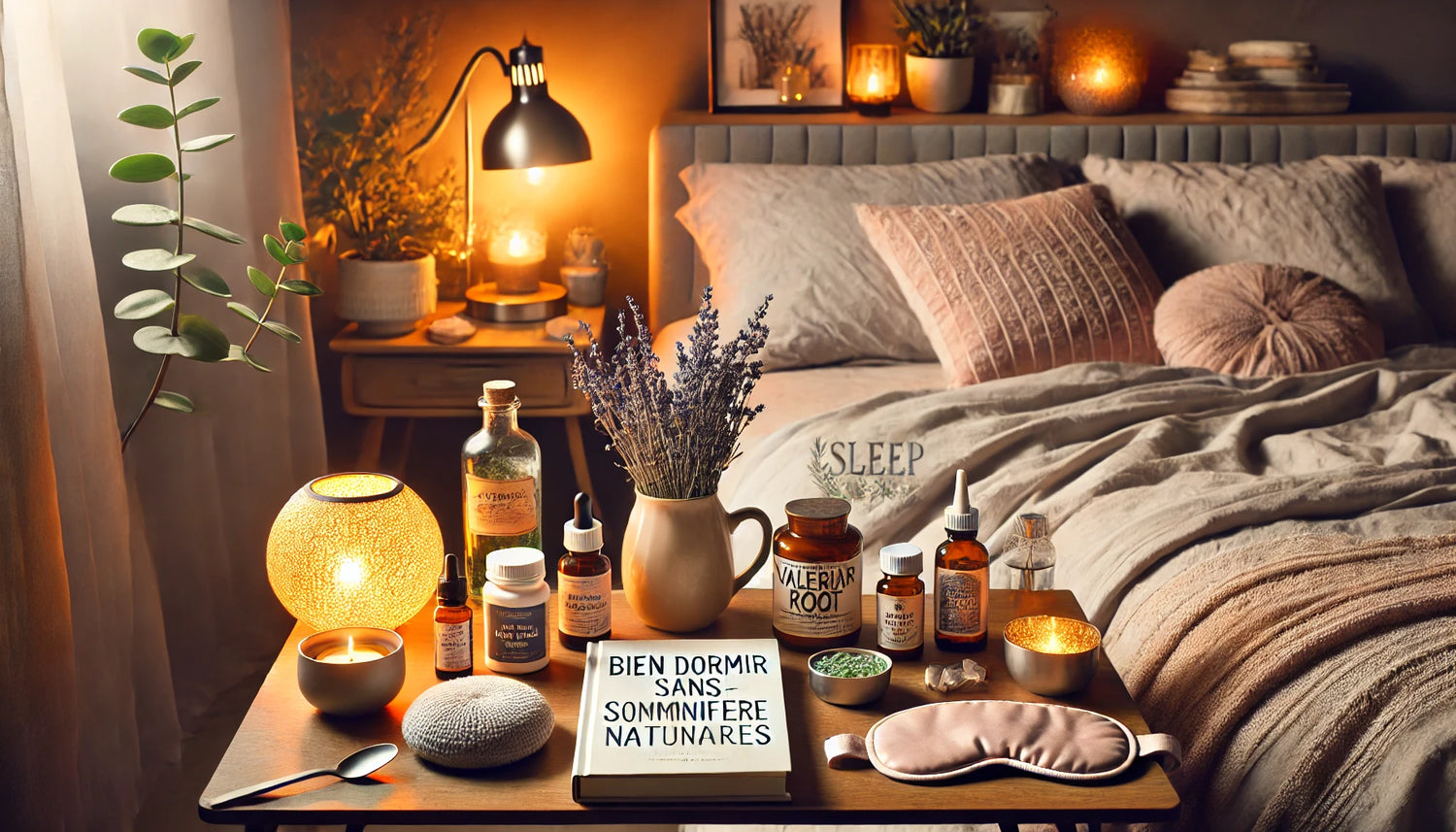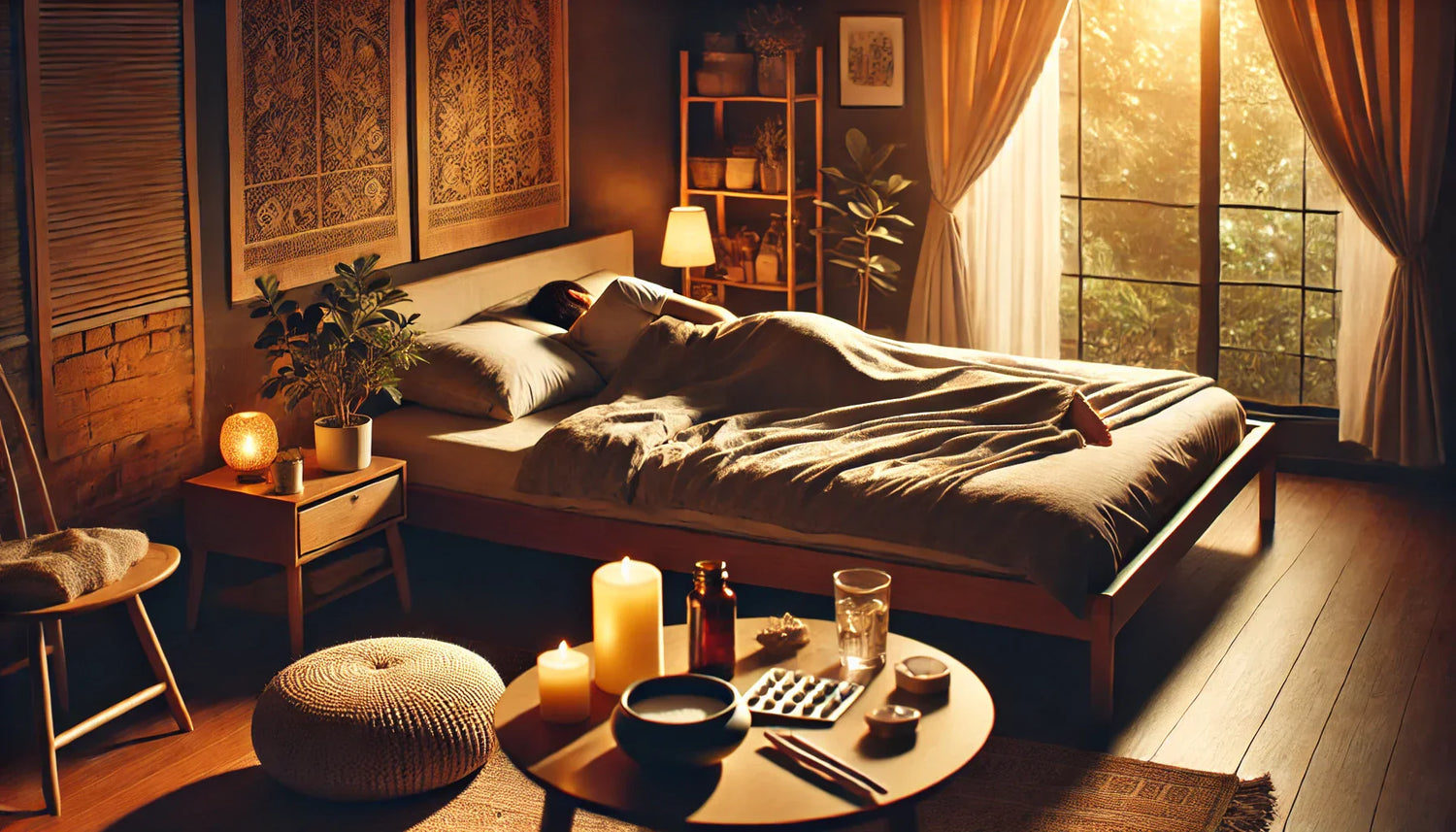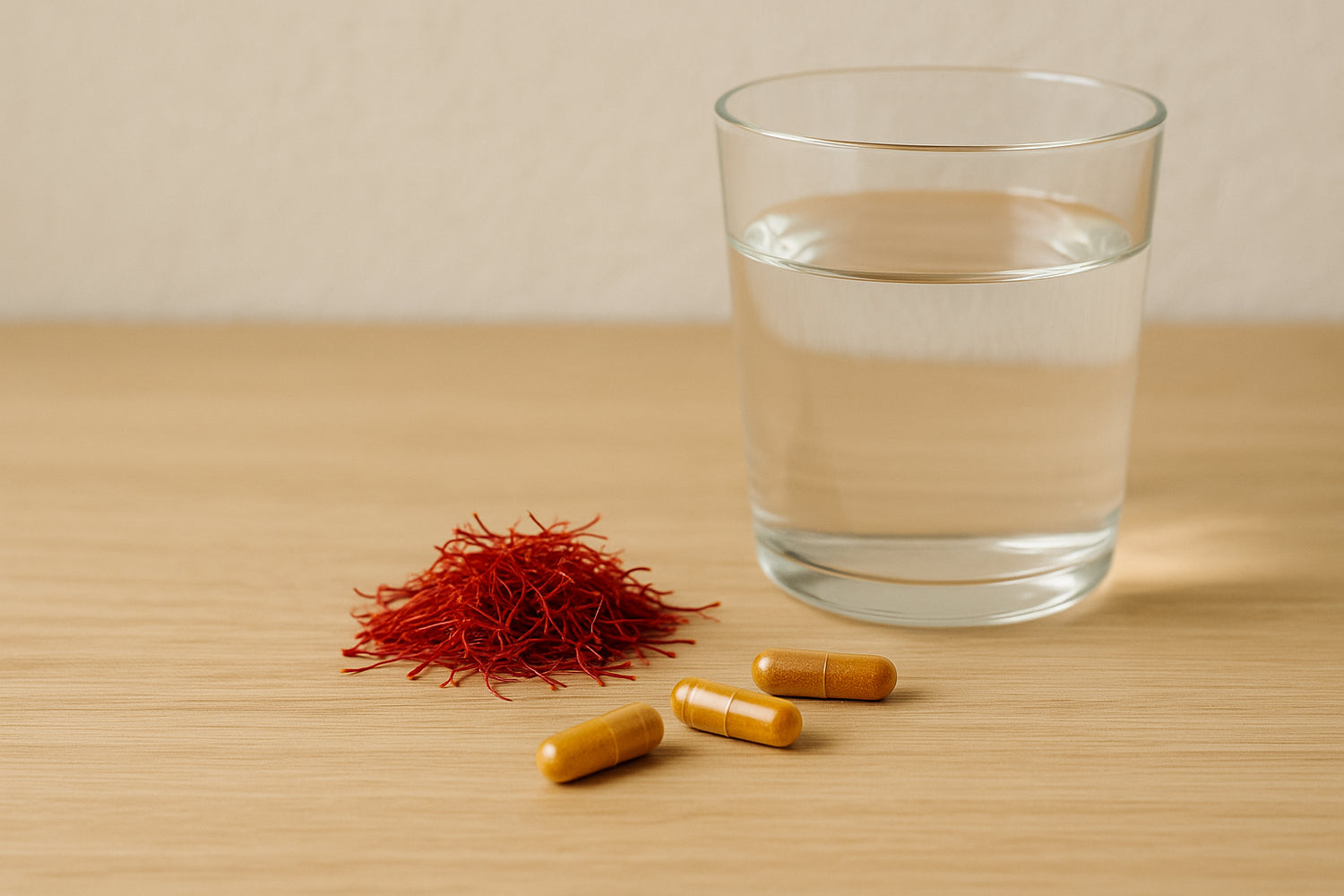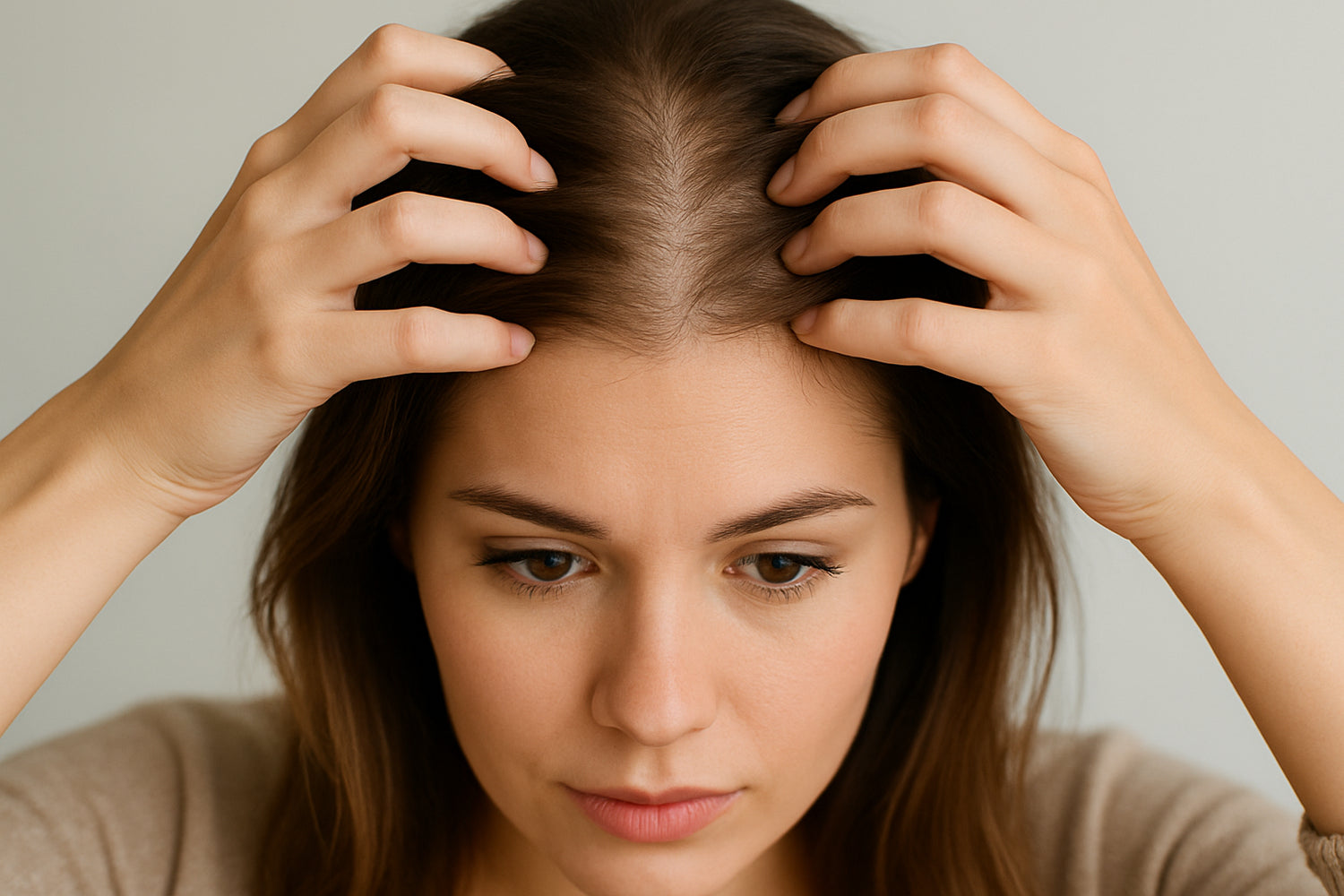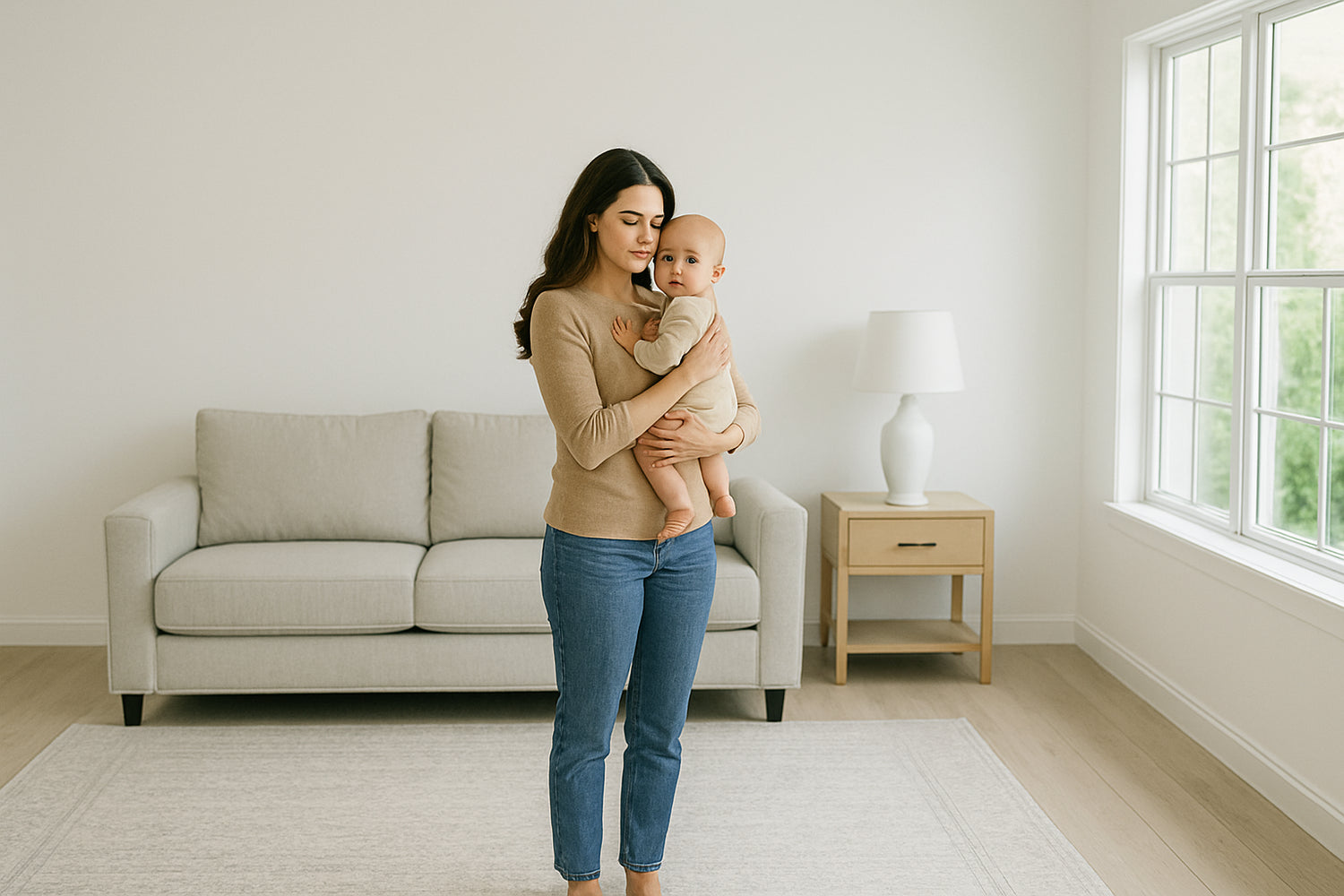One in three French people complain about their sleep and one in ten regularly resorts to sleeping pills. But this hides very contrasting situations. The sleep of a teenager has nothing to do with that of a senior. For example, the latter tends to fall asleep earlier, with a lighter sleep, the teenager to delay bedtime and have to fight against his biological clock in the morning. Let's discover in this article 10 natural tips for sleeping without sleeping pills.
- Why do you have trouble sleeping?
- Tip #1 for sleeping well without sleeping pills: Create a regular sleep routine
- Tip #2 for sleeping well without sleeping pills: improve the sleep environment
- Tip #3 for sleeping well without sleeping pills: food supplements
- Tip #4 for sleeping well without sleeping pills: adopt a diet conducive to sleep
- Tip #5 for sleeping well without sleeping pills: practice relaxation techniques
- Tip #6 for sleeping well without sleeping pills: try natural remedies
- Tip #7 for sleeping well without sleeping pills: practice regular physical activity
- Tip #8 for sleeping well without sleeping pills: reduce screen time before bed
- Tip #9 for sleeping well without sleeping pills: use methods like aromatherapy
- Tip #10 for sleeping well without sleeping pills: limit naps that are too long
Why do you have trouble sleeping?
There are several causes that can cause disrupted sleep:
- Lifestyle : Some daily habits can cause sleep disturbances. The most common include excessive consumption of stimulants (tea, coffee, etc.) or alcohol. Eating too much can also disrupt your night.
- Psychological and emotional factors : Stress and anxiety are common causes that interfere with sleep.
- Certain illnesses affect sleep : thyroid, asthma, gastric reflux, etc. Hormonal fluctuations observed during the menstrual cycle during pregnancy before or during menopause.
- A noisy environment or an irregular temperature in your bedroom are also factors that do not promote restful sleep.
In the long term, several consequences of irregular sleep can occur and lower your quality of life: irritability, chronic fatigue, mood disorders, weakening of the immune system, depression, etc.
The night allows us to recharge our batteries, to free ourselves from our muscular, physical and emotional tensions. As long as they are gentle!!!
Using simple natural methods are solutions to obtain quality sleep and have peaceful nights.

Tip #1 for sleeping well without sleeping pills: Create a regular sleep routine
It is important to establish a ritual before going to bed. Everyone has their own method!
Practicing relaxation exercises can help you fall asleep . It is also advisable to take a hot bath before going to bed.
Also, try to go to bed and get up at regular times , even on holidays and weekends. This helps regulate your internal clock and promote a more stable sleep rhythm so you can sleep well without sleeping pills.
Tip #2 for sleeping well without sleeping pills: improve the sleep environment
To sleep well without sleeping pills, improving the sleep environment is essential.
A dark room promotes melatonin production : use blackout curtains or a sleep mask to block out light. Maintain a temperature between 18 and 20 °C , ideal for relaxation, by airing daily and adapting blankets to the season.
Silence is equally important : use earplugs or white noise if necessary. A comfortable bed, with a suitable mattress and pillows, also contributes to a restful sleep.
Finally, create a calming atmosphere with a tidy space, soft lighting and, why not, a light scent of lavender to encourage relaxation.
Tip #3 for sleeping well without sleeping pills: food supplements
Food supplements are at the forefront of the gondola to ensure restful sleep and limit episodes of insomnia . Without habituation or dependence, they contain ingredients with relaxing and sedative properties. Here are some of them:
- Melatonin : called the "sleep hormone", it is secreted by a region of the brain during the night. It helps regulate biological rhythms and helps to effectively reduce the time it takes to fall asleep and participates in the resynchronization of your sleep cycles.
- Amino acids : tryptophan, glutamine, carnitine promote sleep and reduce stress.
- Plants : valerian, passionflower, lemon balm, hops to relieve sleep disorders in herbal teas and infusions which increase or slightly modify the neurotransmitters which trigger sleep.
- Magnesium : It helps reduce fatigue, relaxes muscles and soothes the nervous balance of your body.
To get quality sleep and days without drowsiness, the best food supplements to choose are those that combine the power of their ingredients with an easy-to-use capsule or tablet format.
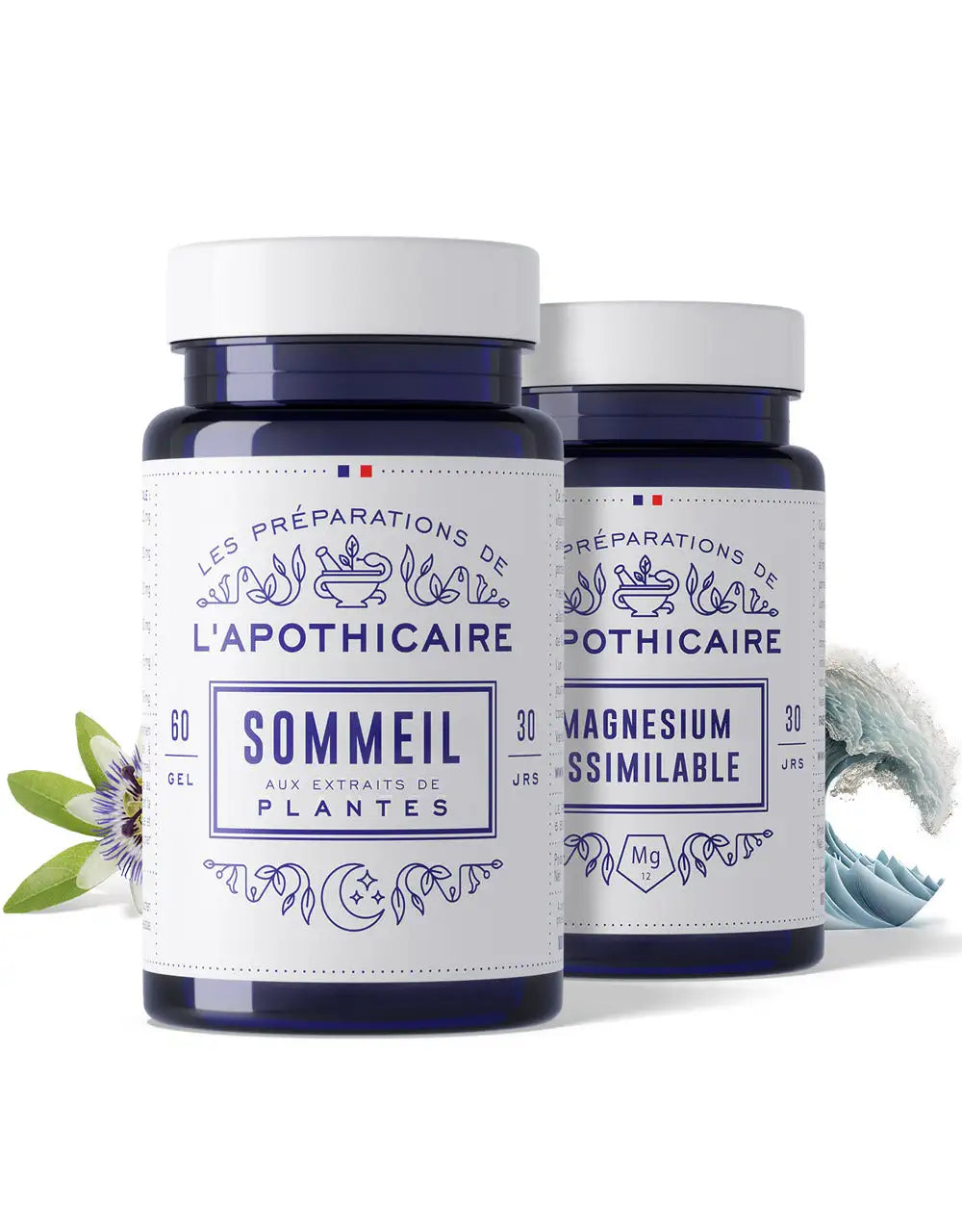
Get a good night’s sleep with our Duo Sleep supplement!
A natural formula to calm the mind, reduce anxiety and promote rapid sleep.
Discover Duo Sleep! Tip #4 for sleeping well without sleeping pills: adopt a diet conducive to sleep
Magnesium is an essential mineral for our health and well-being, it is an essential element for many vital functions in our body and can also contribute to skin hydration, elasticity and radiance.
Magnesium is a fundamental element for our overall health , contributing to the proper functioning of our body at different levels.
It is found in the following foods:
- Whole grains are an important source of magnesium, unlike non-whole grains (=refined) from which the bran, a magnesium-rich shell, has been removed. Thus, two slices of wholemeal bread are equivalent to 35 mg of magnesium. The recommended daily intake of magnesium for an adult is 420 mg.
- Dried fruits are particularly rich in magnesium, with an average of about 300 mg per 100 g. The dried fruit richest in magnesium is the Brazil nut with nearly 400 mg of magnesium per 100 g. Almonds, walnuts and hazelnuts are also well provided with it.
- Banana is the fruit richest in magnesium, with 35 mg per 100g. If it is consumed dried, its magnesium content increases with 105 mg per 100g. Figs, dates or apricots are also a good source of magnesium.
Tryptophan is one of the so-called "essential" amino acids, its intake through food is all the more important because it is rare and easily degraded. It regulates functions such as sleep, mood and the feeling of satiety. Indeed, it is necessary for the synthesis of serotonin, the happiness hormone. Foods that contain it include, for example , dark chocolate, rice, soy, seeds such as pumpkin seeds.
Tip #5 for sleeping well without sleeping pills: practice relaxation techniques
To sleep well without resorting to sleeping pills, incorporating relaxation techniques such as breathing or meditation into your evening routine is a natural and effective solution.
These practices reduce stress by activating the nervous system of relaxation, prepare your mind and body for sleep, and promote faster falling asleep as well as deeper sleep . P
For example, slow and controlled breathing (like cardiac coherence), progressive muscle relaxation, or guided meditation help release tension and soothe the mind. Practiced in a calm environment, with subdued lighting and daily regularity, these techniques promote deep relaxation and better quality sleep over time.

Tip #6 for sleeping well without sleeping pills: try natural remedies
And by natural remedies, we mean: herbal teas!
Chamomile helps with relaxation, as well as physical and mental well-being. It therefore helps combat minor insomnia.
Lavender , this purple flower, has the ability to reduce anxiety and stress. Lavender can promote a feeling of calm and tranquility, helping to reduce stressful thoughts that can disrupt our sleep.
Valerian activates the release of γ-aminobutyric acid , often abbreviated as GABA. This neurotransmitter has a calming and relaxing effect on the body, making it easier to fall asleep. Valerian is therefore ideal for relieving mild sleep disorders.
Tip #7 for sleeping well without sleeping pills: practice regular physical activity
Sport during the day is known to be an escape and thus allows you to avoid thinking about external problems , it thus evacuates stress and anxiety thanks to the release of dopamine. Thus, sport reduces stress levels.
In addition, some studies show that physical activity has notable benefits against certain sleep diseases such as sleep apnea or asthma.
Yoga allows physical, mental and emotional relaxation by combining postures, breathing exercises and meditation.

Tip #8 for sleeping well without sleeping pills: reduce screen time before bed
The screens of electronic devices, such as smartphones, tablets and televisions, emit blue light that disrupts the circadian rhythm, our internal biological clock . This light inhibits the production of melatonin, a key hormone for falling asleep.
In addition, screen-related activities stimulate the brain, delaying the feeling of fatigue and harming the quality of sleep . To avoid these effects, it is advisable to limit the use of screens at least one hour before bedtime.
If this is not possible, activating the “blue light filter” or “night mode” modes on devices can reduce the impact. At the same time, favoring relaxing activities such as reading or meditation before going to sleep is an excellent alternative to promote natural sleep.
Tip #9 for sleeping well without sleeping pills: use methods like aromatherapy
Aromatherapy, through the use of essential oils, is a gentle and natural method to promote sleep . Certain essential oils, such as true lavender, Roman chamomile, mandarin or bitter orange, have soothing properties that help reduce stress and induce a state of relaxation conducive to rest.
To benefit from it, you can diffuse a few drops in a diffuser before bed, dilute them in a vegetable oil to apply to the wrists or feet, or use them in a relaxing hot bath . These simple rituals help create a calm environment and prepare the body and mind for a restful night's sleep, without resorting to sleeping pills.
Tip #10 for sleeping well without sleeping pills: limit naps that are too long
Do not nap if you have trouble sleeping, or at least not for more than 20 minutes and preferably early in the afternoon .
Sleep is vital to our health and general well-being. It is therefore important to take care of it by adopting these simple and natural measures to promote its quality. If insomnia persists, it is imperative to seek medical advice in order to identify other causes.


